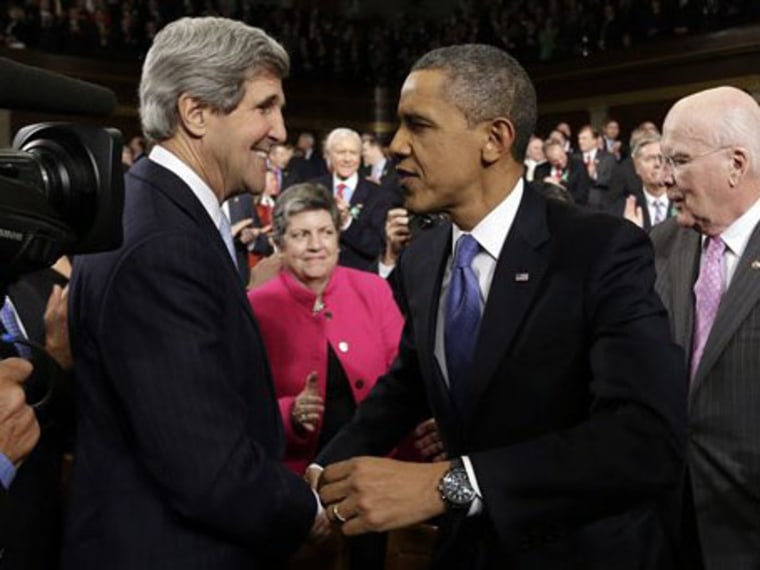As the political world, in the United States and abroad, begins to appreciate the scope of the international nuclear deal with Iran, policymakers will have a spirited debate over the implications and efficacy of the agreement. But before that begins in earnest, it's worth pausing to acknowledge just what an extraordinary accomplishment this breakthrough really is.
In the abstract, this deal was practically impossible.
Take two countries that are bitter enemies and which haven't even spoken in decades. Add heightened fears about terrorism and the most dangerous weapons ever created. Add four other major, disparate countries from around the planet, each with their own interests and agendas, and some of which struggle to get along.
The negotiators' task involved elements of economics, nuclear science, diplomacy, national security, and geopolitics. Their goal was a product that checked a series of highly complex boxes, satisfying the competing needs of seven different powers, all while opening a repressive regime to international weapons inspectors for the first time.
At the start of the process, the smart money said these talks would fail. The hurdles were simply too great. Indeed, plenty of very credible observers feared that the attempted diplomacy itself might be a mistake -- failure would leave the world in an even more precarious position than before the talks began.
President Obama and Secretary of State John Kerry recognized the challenges and risks, and they took it on anyway. Their success will likely put a stop to Iran's nuclear-weapons program, but it also marks one of the most dramatic diplomatic accomplishments in generations.
I've seen some suggestions about this being Obama's "Nixon goes to China" breakthrough, but the comparison is imprecise -- the Obama administration's task was far more difficult. I'm reminded of this piece from the Washington Post's Steven Mufson, published in March.
...Obama is not Nixon, and Iran is not China, and the comparison -- made in newspaper columns and by some foreign policy experts -- is illuminating largely because of important differences it exposes. Nixon's visit to China was a powerful symbol -- a longtime anti-Communist president strolling along the Great Wall and dining with senior party leaders. Unlike Nixon, Obama lacked a political record that would shield him from criticism for reaching out to a longtime foe. China also welcomed Nixon's visit, whereas Iranian leaders still harbor suspicion of the United States.
Plenty of American presidents have added historic diplomatic achievements to their legacies. Nixon helped open China; Carter had the Camp David accords; H.W. Bush assembled an impressive coalition for the first Gulf War; and Clinton helped bring peace to Northern Ireland.
But the nuclear agreement with Iran is arguably a greater diplomatic accomplishment than anything we've seen in modern American history.
